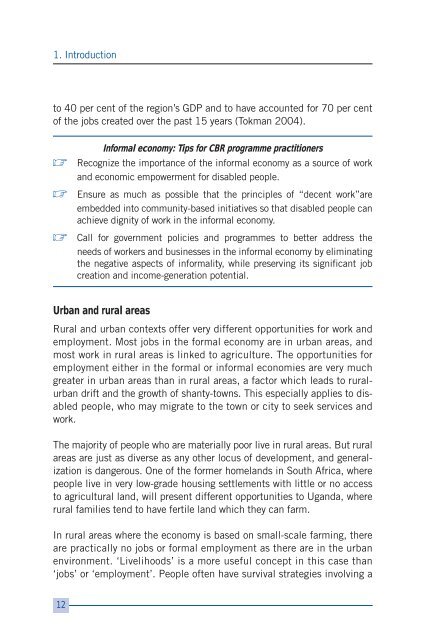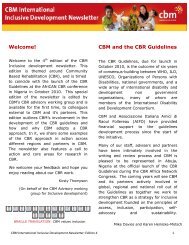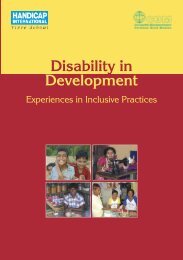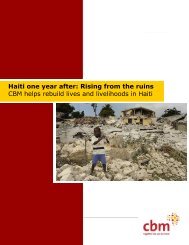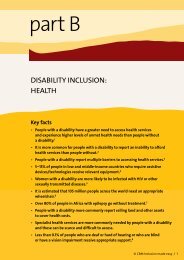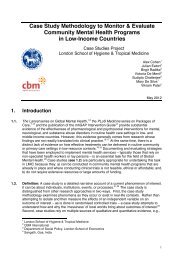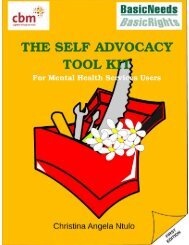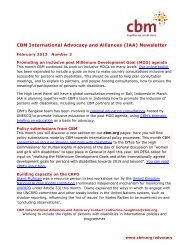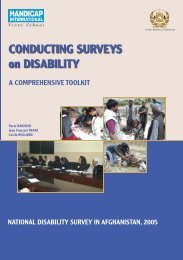Skills Development through Community Based Rehabilitation (CBR)
Skills Development through Community Based Rehabilitation (CBR)
Skills Development through Community Based Rehabilitation (CBR)
Create successful ePaper yourself
Turn your PDF publications into a flip-book with our unique Google optimized e-Paper software.
1. Introduction<br />
to 40 per cent of the region’s GDP and to have accounted for 70 per cent<br />
of the jobs created over the past 15 years (Tokman 2004).<br />
Informal economy: Tips for <strong>CBR</strong> programme practitioners<br />
Recognize the importance of the informal economy as a source of work<br />
and economic empowerment for disabled people.<br />
Ensure as much as possible that the principles of “decent work”are<br />
embedded into community-based initiatives so that disabled people can<br />
achieve dignity of work in the informal economy.<br />
Call for government policies and programmes to better address the<br />
needs of workers and businesses in the informal economy by eliminating<br />
the negative aspects of informality, while preserving its significant job<br />
creation and income-generation potential.<br />
Urban and rural areas<br />
Rural and urban contexts offer very different opportunities for work and<br />
employment. Most jobs in the formal economy are in urban areas, and<br />
most work in rural areas is linked to agriculture. The opportunities for<br />
employment either in the formal or informal economies are very much<br />
greater in urban areas than in rural areas, a factor which leads to ruralurban<br />
drift and the growth of shanty-towns. This especially applies to disabled<br />
people, who may migrate to the town or city to seek services and<br />
work.<br />
The majority of people who are materially poor live in rural areas. But rural<br />
areas are just as diverse as any other locus of development, and generalization<br />
is dangerous. One of the former homelands in South Africa, where<br />
people live in very low-grade housing settlements with little or no access<br />
to agricultural land, will present different opportunities to Uganda, where<br />
rural families tend to have fertile land which they can farm.<br />
In rural areas where the economy is based on small-scale farming, there<br />
are practically no jobs or formal employment as there are in the urban<br />
environment. ‘Livelihoods’ is a more useful concept in this case than<br />
‘jobs’ or ‘employment’. People often have survival strategies involving a<br />
12


